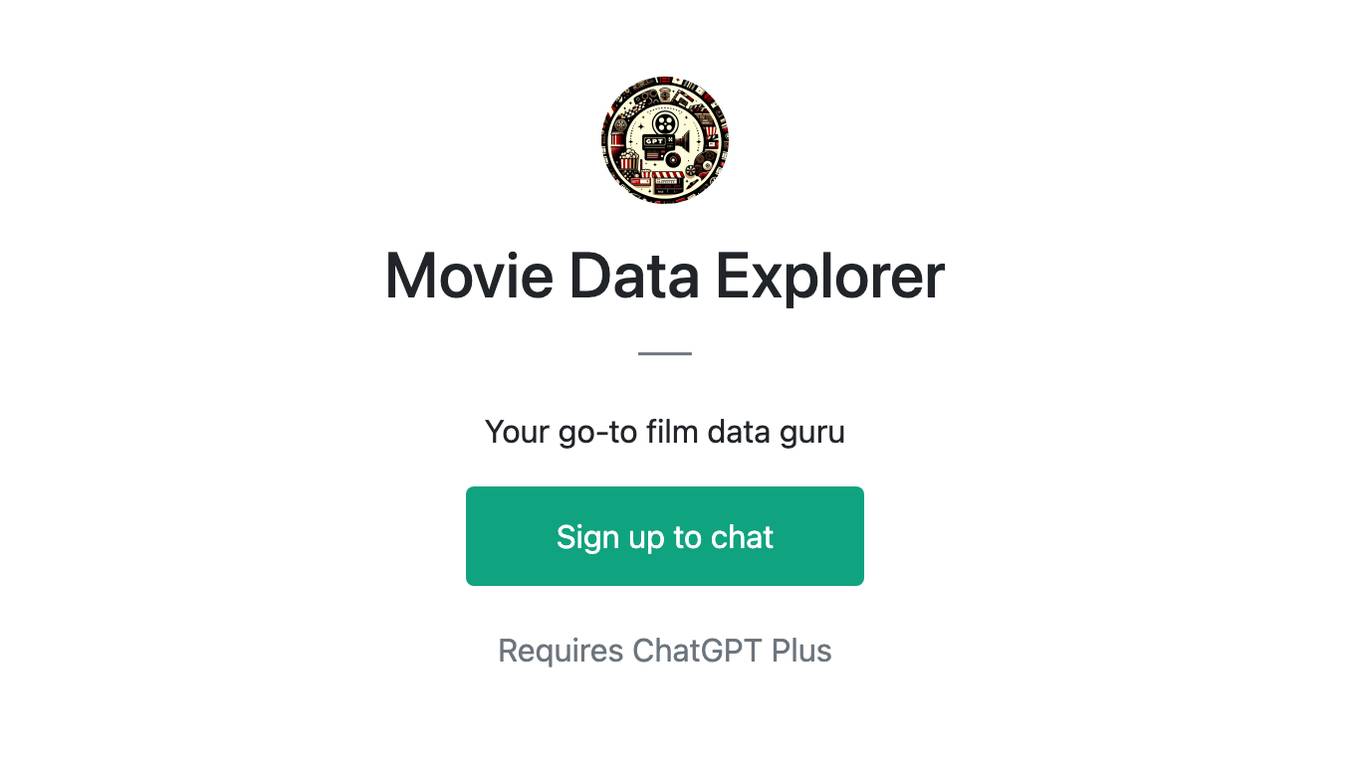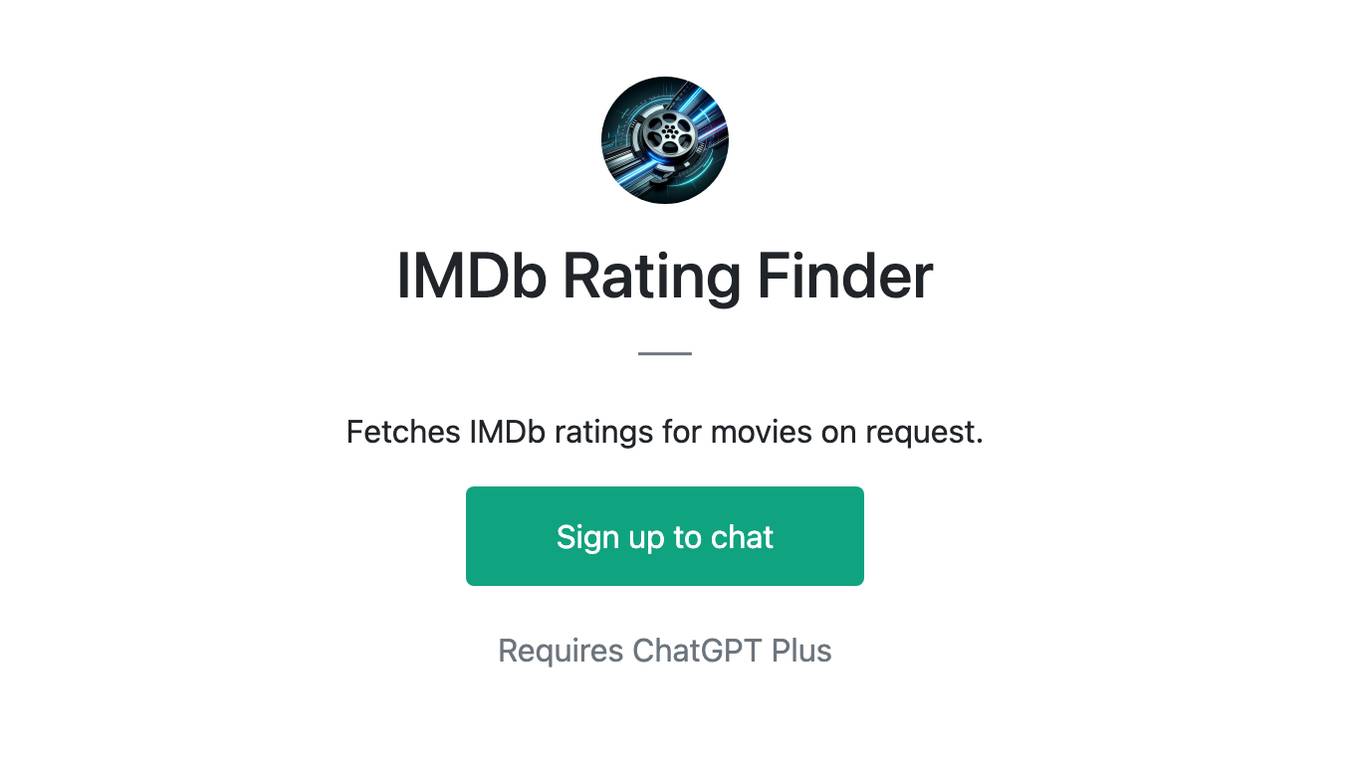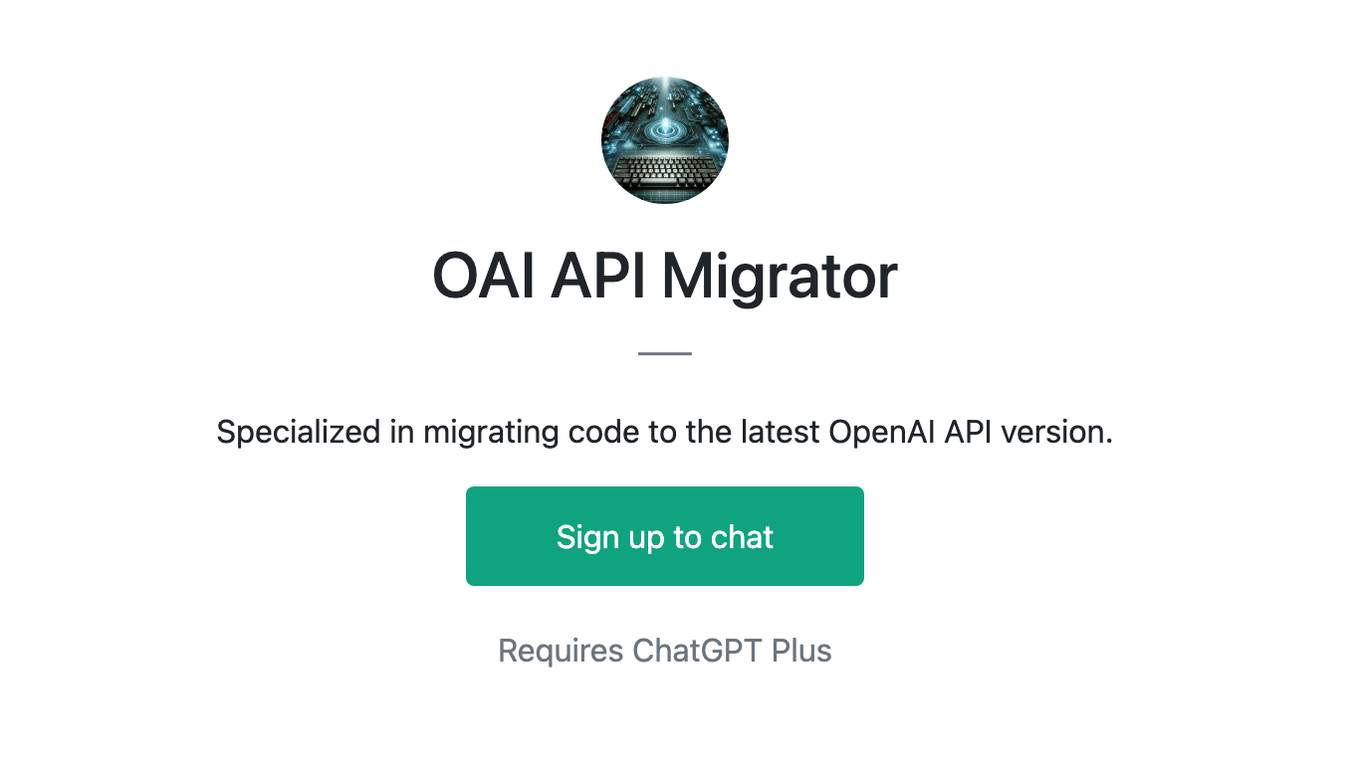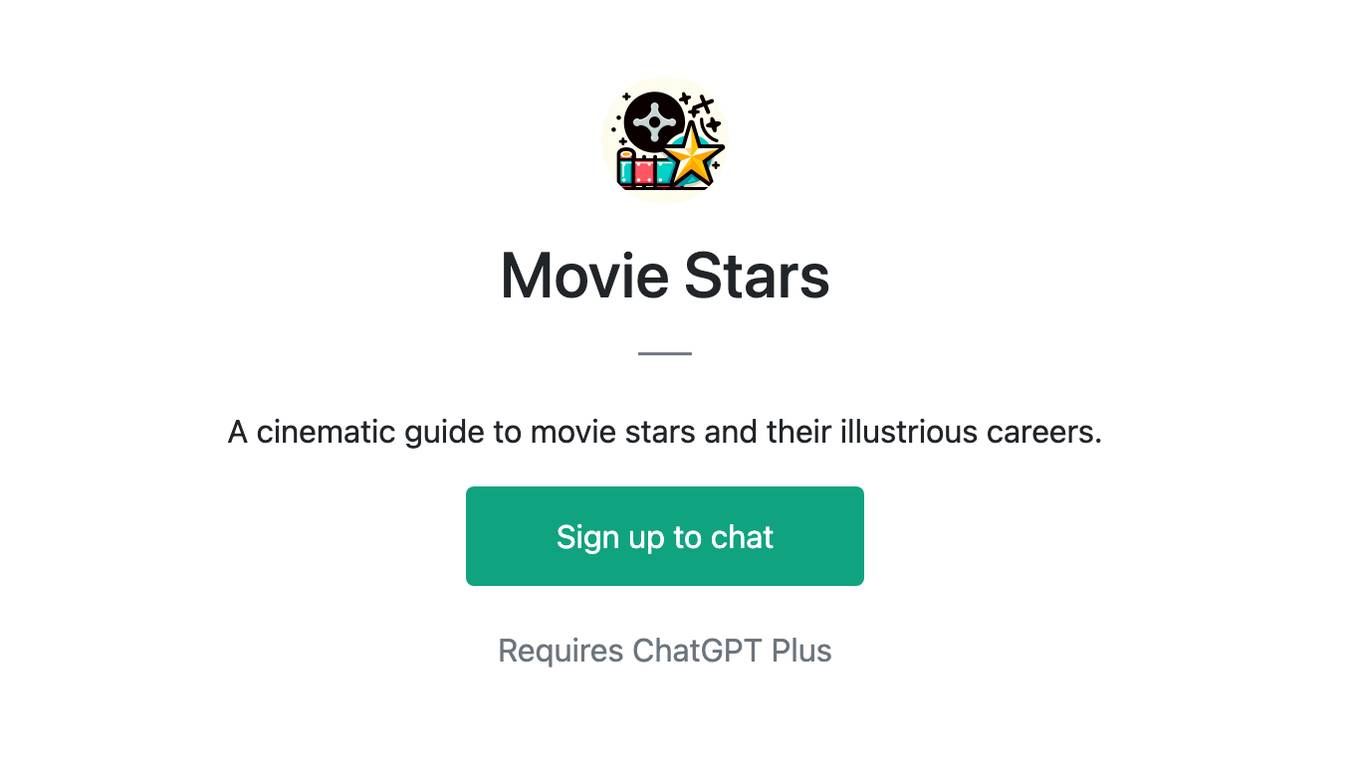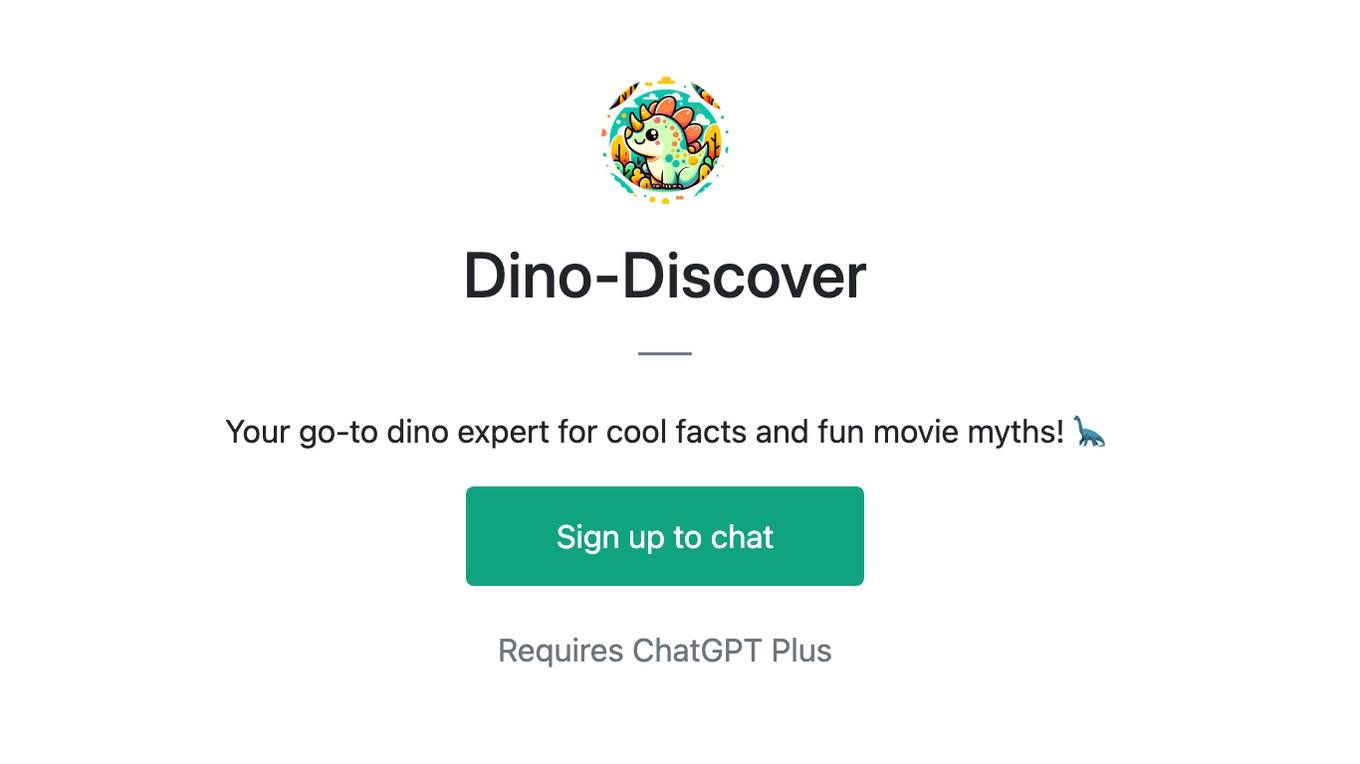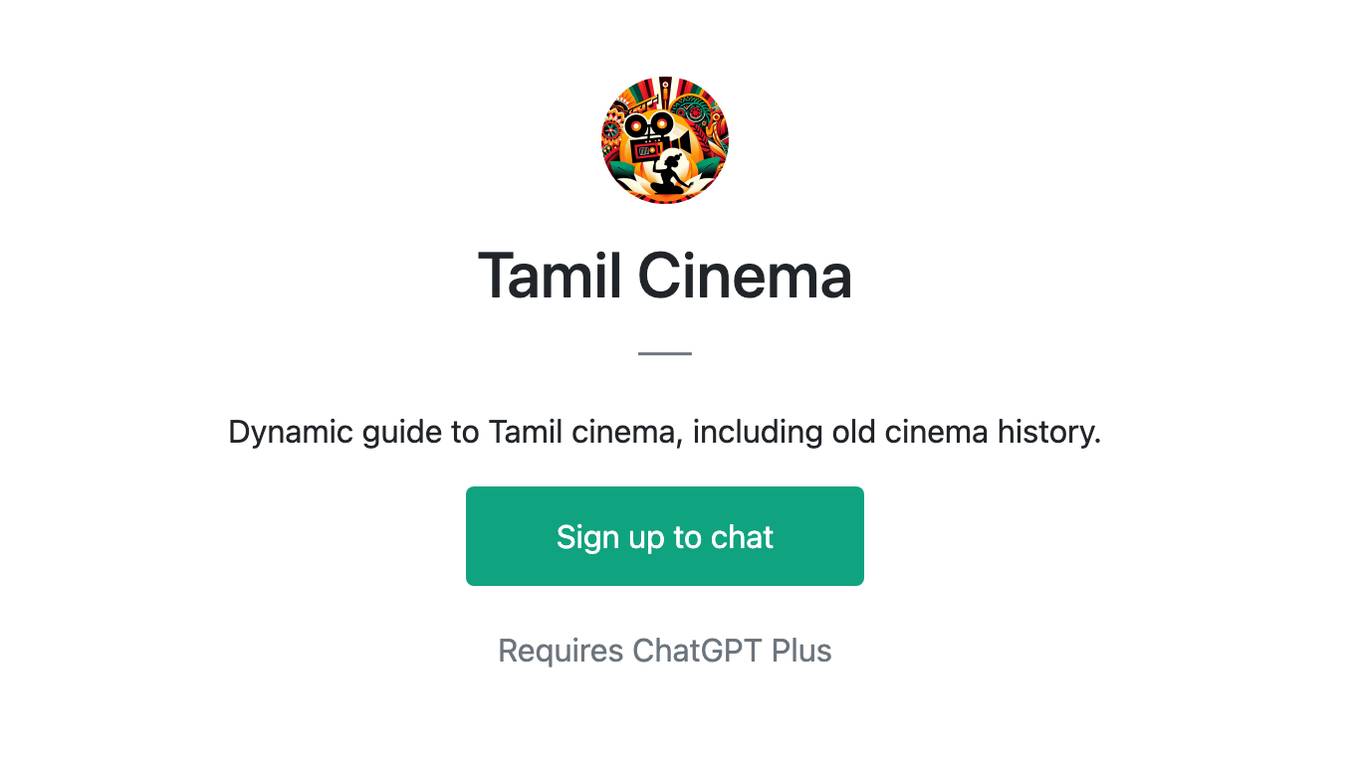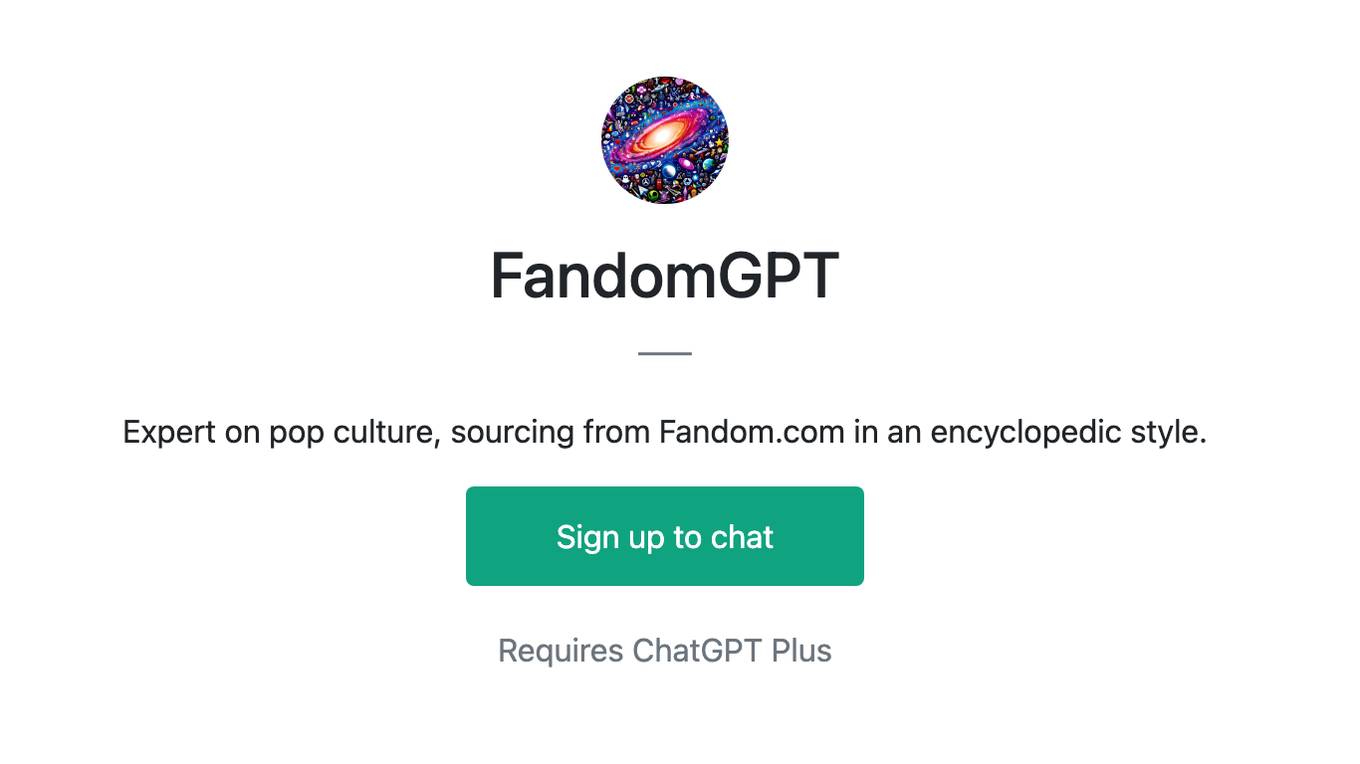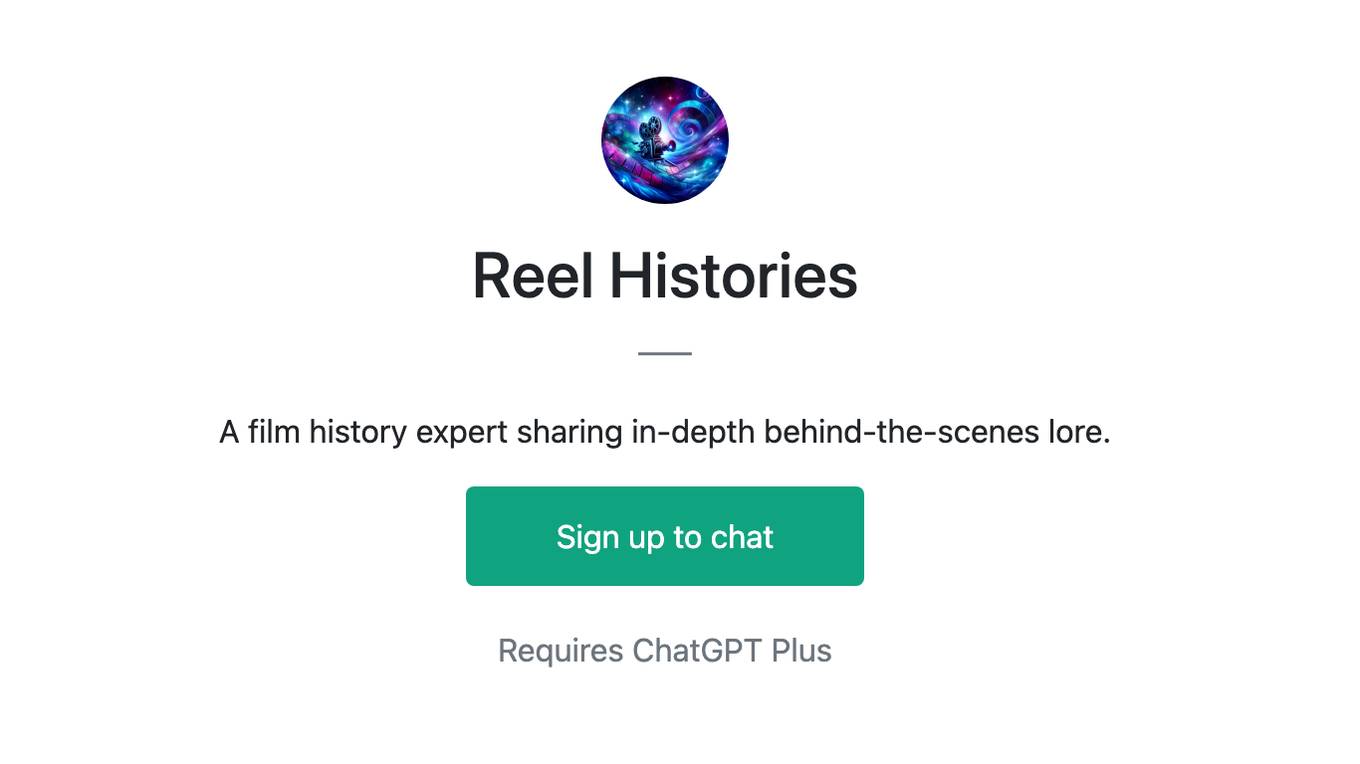Best AI tools for< Research Movie Data >
20 - AI tool Sites
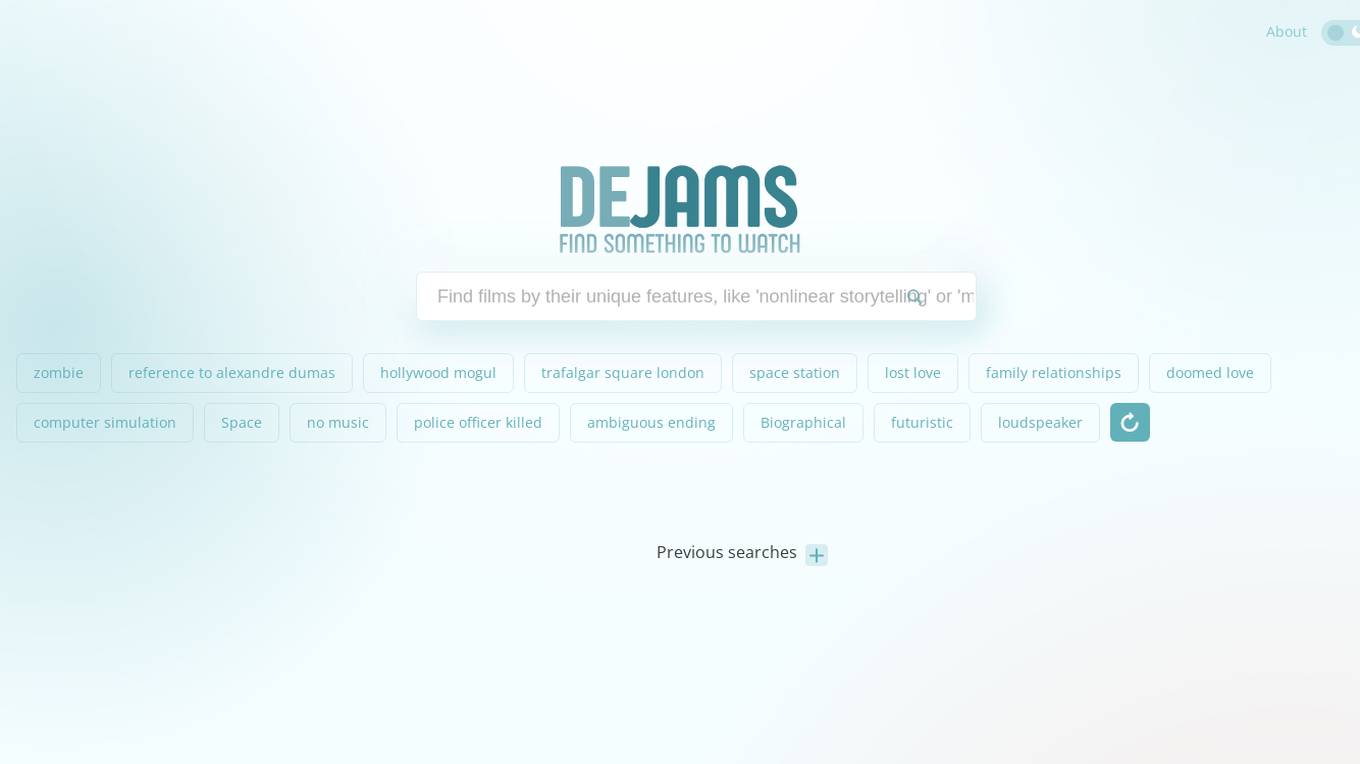
Dejams
Dejams is an AI-enhanced movie search engine that utilizes OpenAI to improve search results. It combines data from various sources such as themoviedb.org, rottentomatoes.com, and imdb.com, along with user-generated content. Dejams also integrates a widget from JustWatch.com to help users find where to watch movies. The website aims to provide the best movie search experience and welcomes user feedback for improvement.
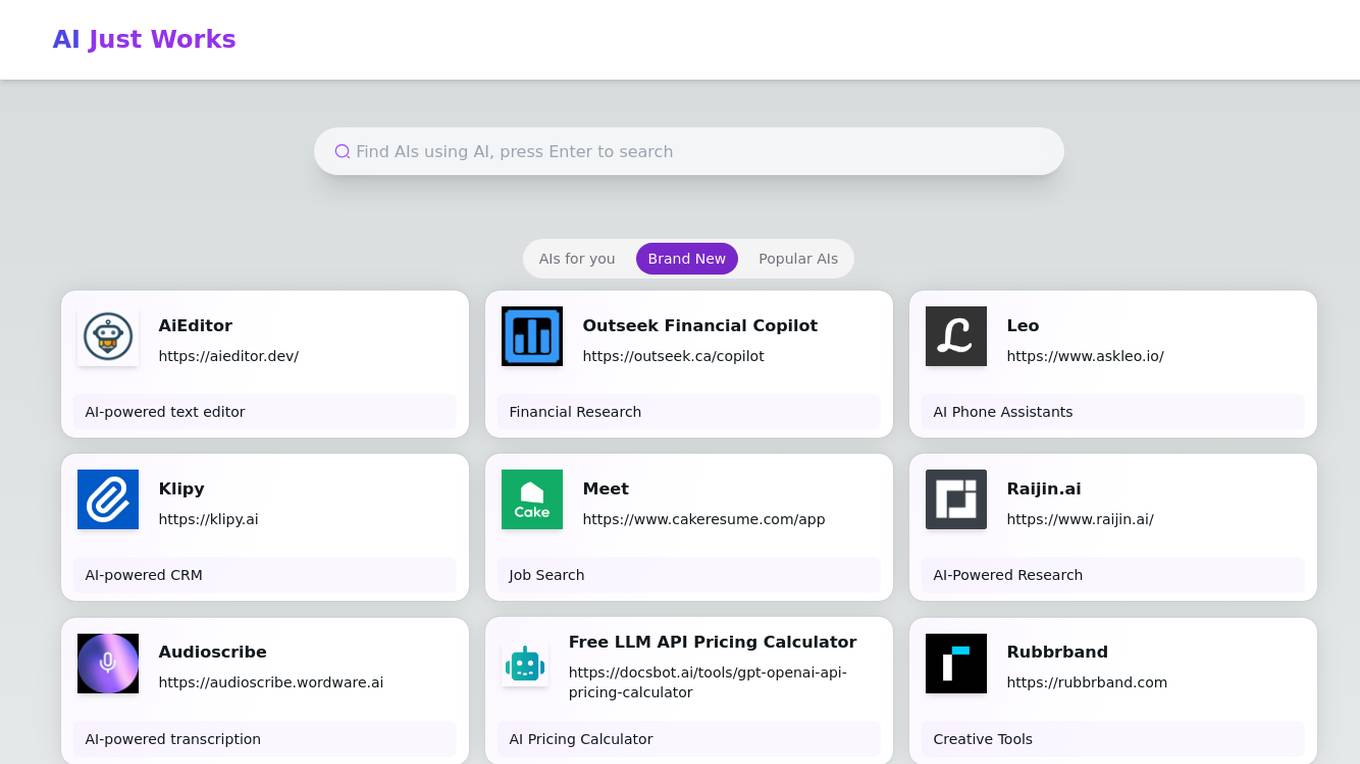
AI Just Works
AI Just Works is an AI-powered platform that showcases a variety of AI applications across different domains such as financial research, job search, creative tools, game, credit card management, text analytics, product development, sales demos, screen time management, data integration, trip planning, education, health & fitness, movie discovery, AI collaboration, and more. The platform serves as a hub for users to explore and discover innovative AI tools to enhance productivity and efficiency in various tasks and industries.

Move 37
Move 37 is an AI product studio that has been designing, building, and shipping AI products since 2017. They specialize in designing, developing, and managing AI products, tools, and workflows to help users unlock new levels of insight, productivity, and efficiency. By reimagining how work gets done collaboratively, they aim to bring teams, executives, and organizations together to realize better work futures and products. Move 37 offers services such as generative reporting, research and insights, product development, customer service, and content generation.
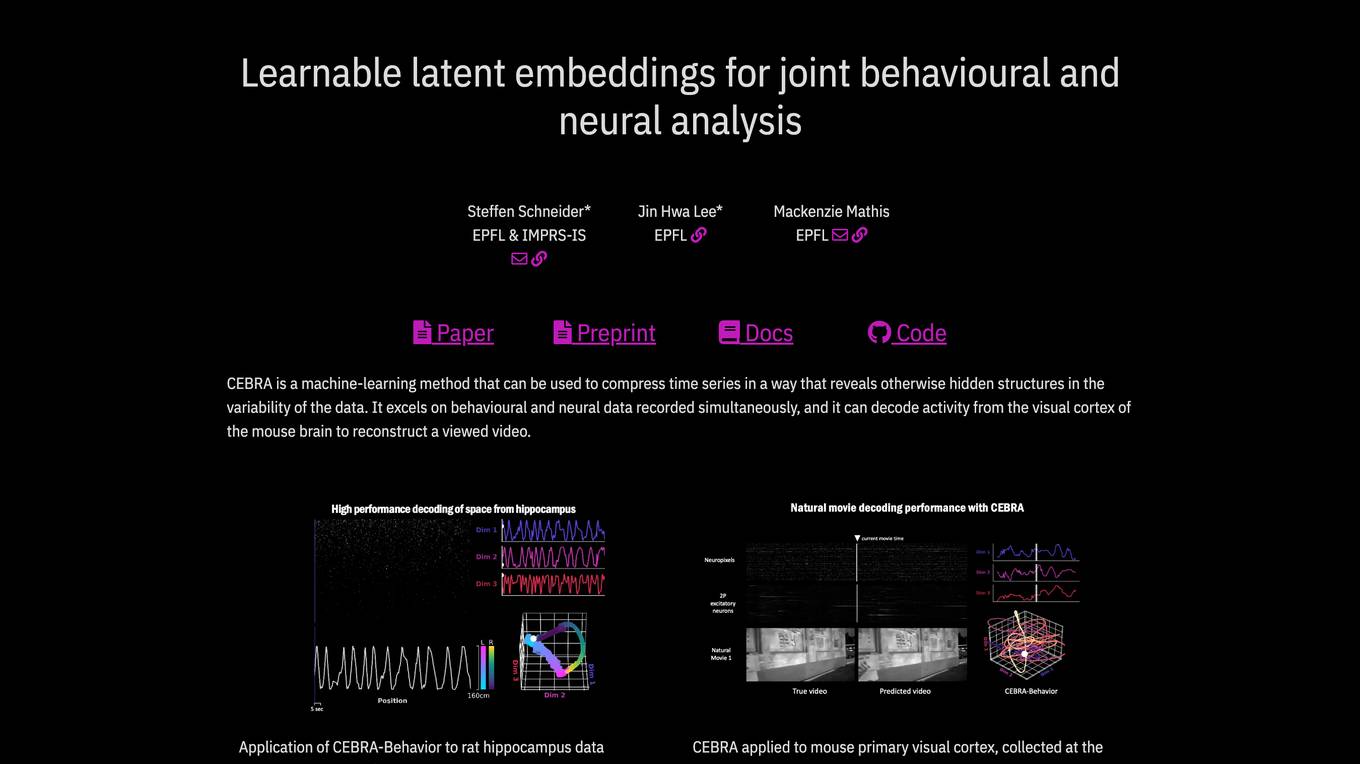
CEBRA
CEBRA is a self-supervised learning algorithm designed for obtaining interpretable embeddings of high-dimensional recordings using auxiliary variables. It excels in compressing time series data to reveal hidden structures, particularly in behavioral and neural data. The algorithm can decode neural activity, reconstruct viewed videos, decode trajectories, and determine position during navigation. CEBRA is a valuable tool for joint behavioral and neural analysis, providing consistent and high-performance latent spaces for hypothesis testing and label-free applications across various datasets and species.
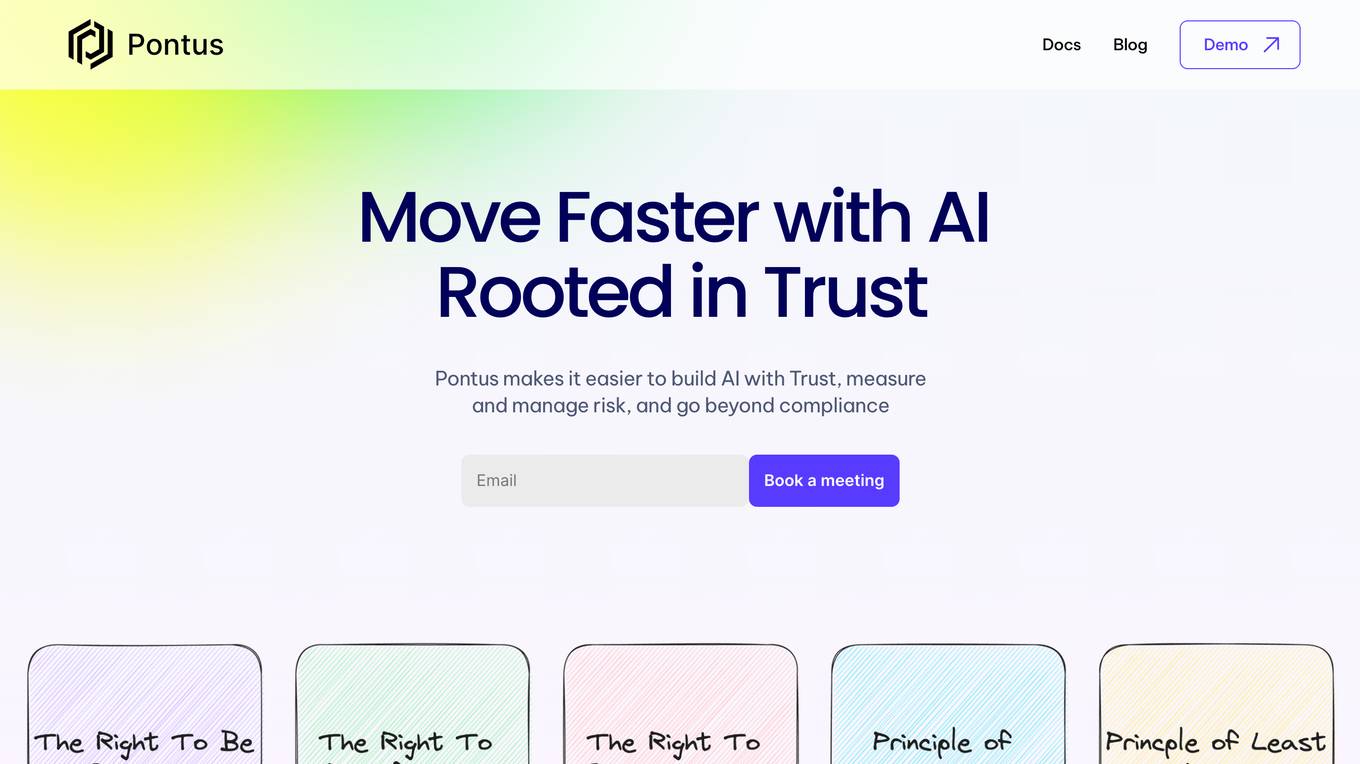
Pontus
Pontus is an AI tool that enables users to build AI models with trust, manage risk, and ensure compliance effortlessly. It offers features like smart anonymization, rapid audit, and liability reduction, along with privacy-enhancing technology. Pontus allows for on-premise deployment, role-based access controls, and toxicity checking to prevent inappropriate content. The application is designed to work seamlessly with common LLM providers, making it a valuable asset for industries like healthcare, finance, and research.
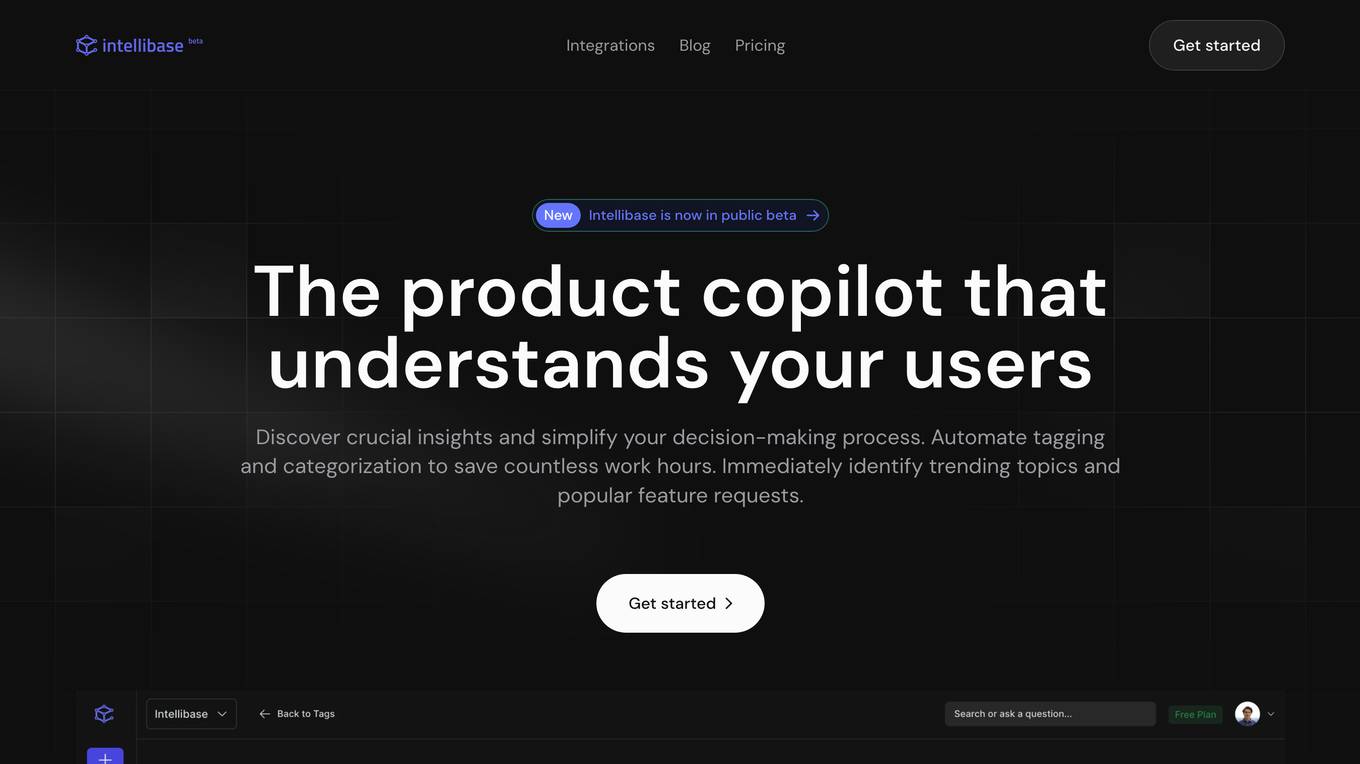
Trill
Trill is an AI-powered research assistant designed to streamline the user research process. It helps users move from interviews to insights quickly by providing relevant insights and observations based on project objectives. With features like instant themes and categories, organizing findings, and a user-friendly editor, Trill aims to simplify and accelerate the research analysis process. Currently in beta, Trill offers a free trial for users to experience its capabilities and provide feedback for further improvements.
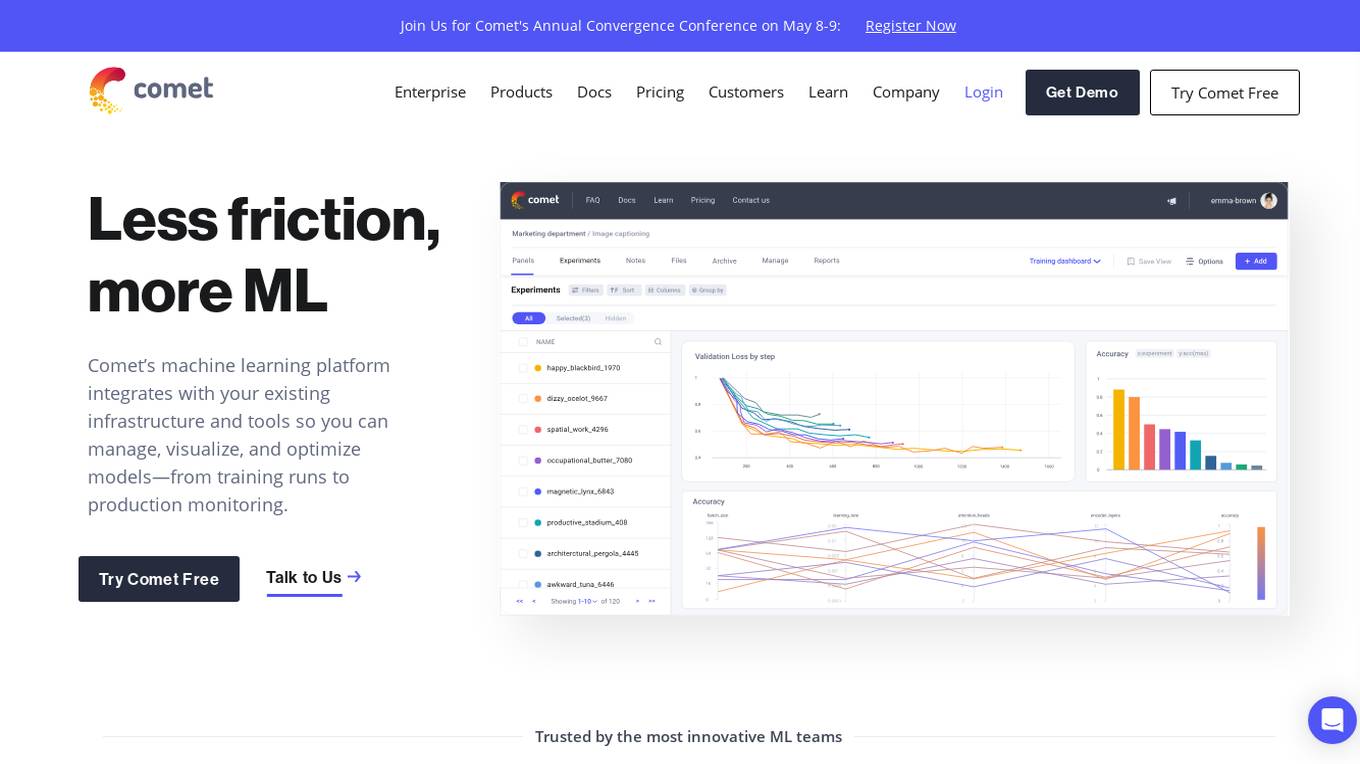
Comet ML
Comet ML is an extensible, fully customizable machine learning platform that aims to move ML forward by supporting productivity, reproducibility, and collaboration. It integrates with existing infrastructure and tools to manage, visualize, and optimize models from training runs to production monitoring. Users can track and compare training runs, create a model registry, and monitor models in production all in one platform. Comet's platform can be run on any infrastructure, enabling users to reshape their ML workflow and bring their existing software and data stack.
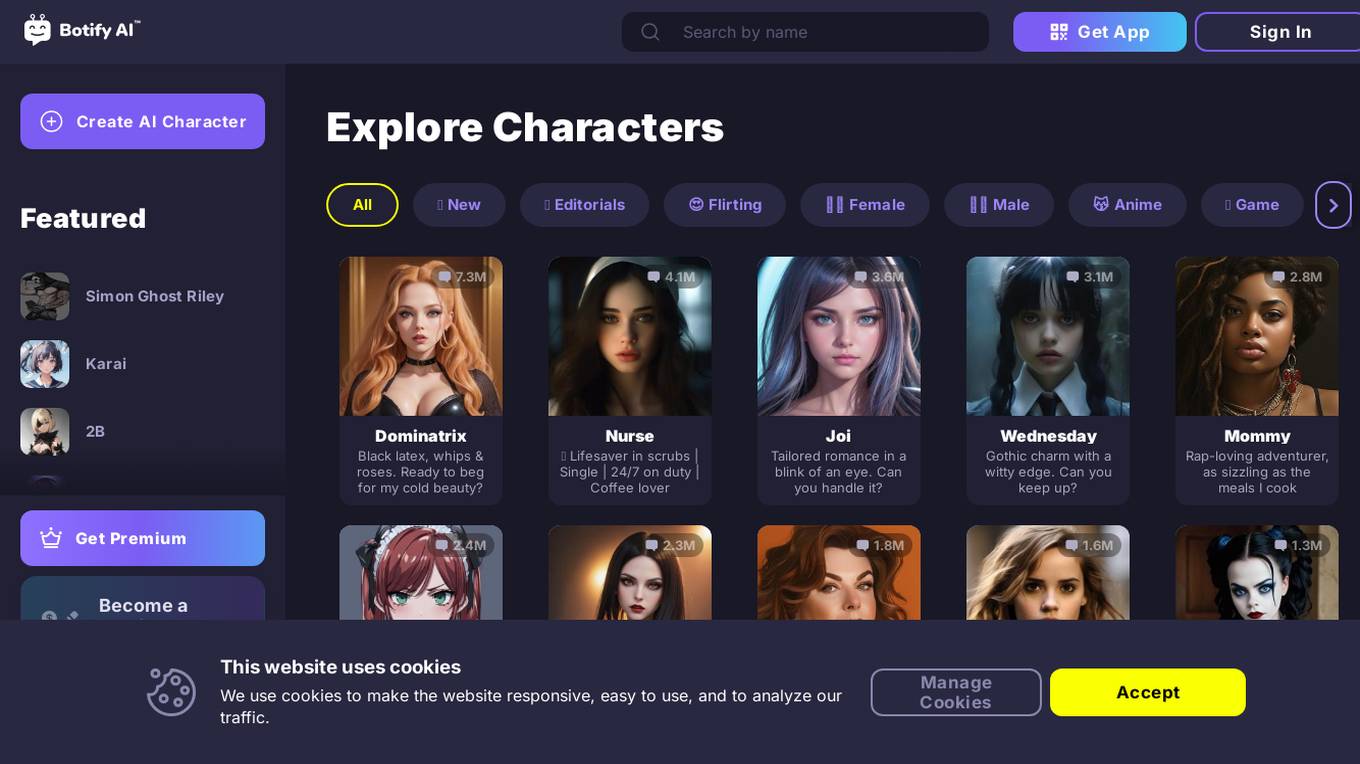
Botify AI
Botify AI is an AI-powered tool designed to assist users in optimizing their website's performance and search engine rankings. By leveraging advanced algorithms and machine learning capabilities, Botify AI provides valuable insights and recommendations to improve website visibility and drive organic traffic. Users can analyze various aspects of their website, such as content quality, site structure, and keyword optimization, to enhance overall SEO strategies. With Botify AI, users can make data-driven decisions to enhance their online presence and achieve better search engine results.
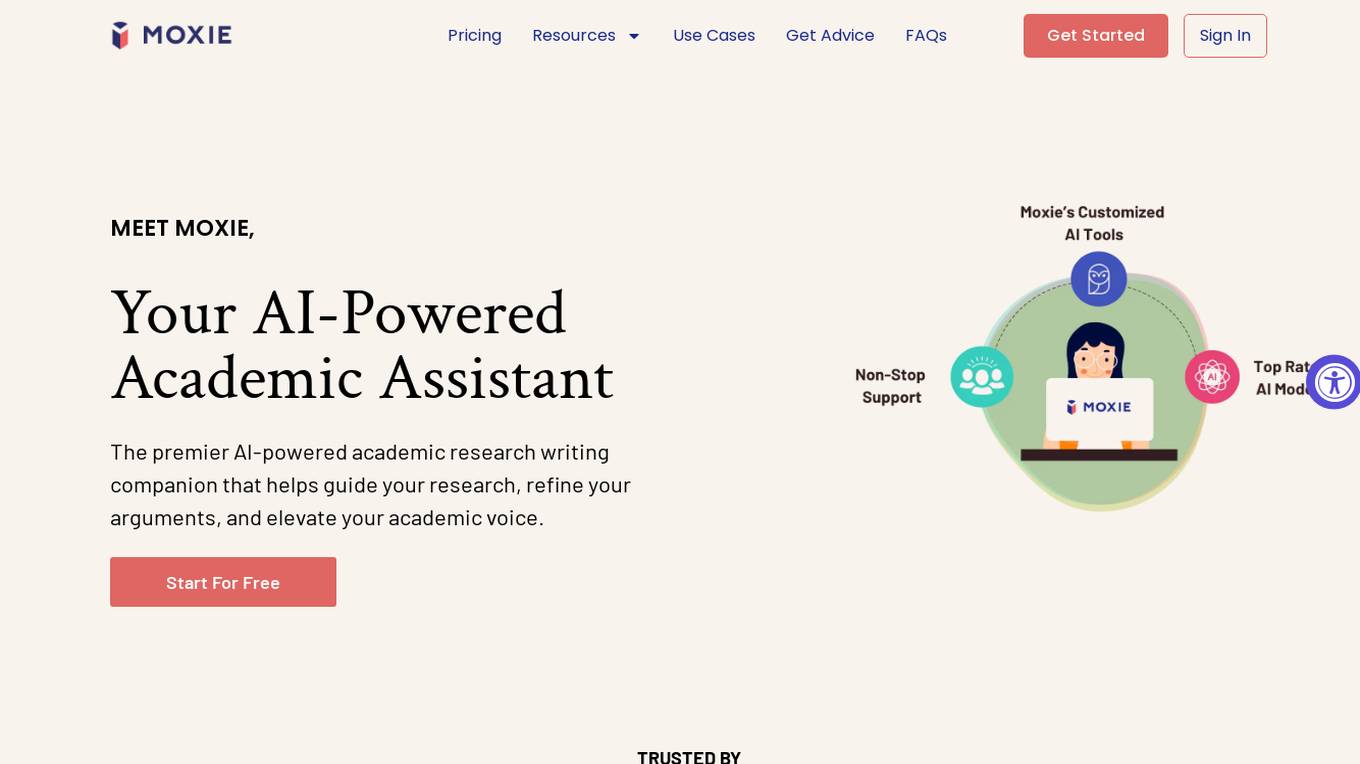
Moxie
Moxie is an AI-powered academic research writing companion that assists users in refining arguments, guiding research, and enhancing academic voice. It offers personalized feedback, AI-powered writing assistance, and tools for research design. Unlike AI content generators, Moxie empowers scholars to tackle complex tasks while preserving their critical thinking. The platform provides premium AI models, interactive learning sessions, and a personalized approach to academic writing. Users can streamline research processes, refine arguments, and receive actionable feedback to enhance their academic work.

ChatFAI
ChatFAI is a large language model that can help you with a variety of writing tasks, including generating text, translating languages, and writing different kinds of creative content. It is designed to be easy to use and can be accessed through a simple web interface.

Nuro
Nuro is an autonomous technology company focused on revolutionizing mobility through robotics and AI. They offer cutting-edge AI-first autonomy solutions for automotive and mobility applications, including robotaxis and autonomous vehicles. Nuro's state-of-the-art AV technology, Nuro Driver™, is designed to drive safely and naturally on all roads using groundbreaking AI-first autonomy. The company prioritizes safety in all aspects of its operations, from hardware and software to testing and systems engineering. With 8 years of autonomy innovation, Nuro aims to transform the way goods and people move by empowering fleets with AI-first autonomous capabilities.
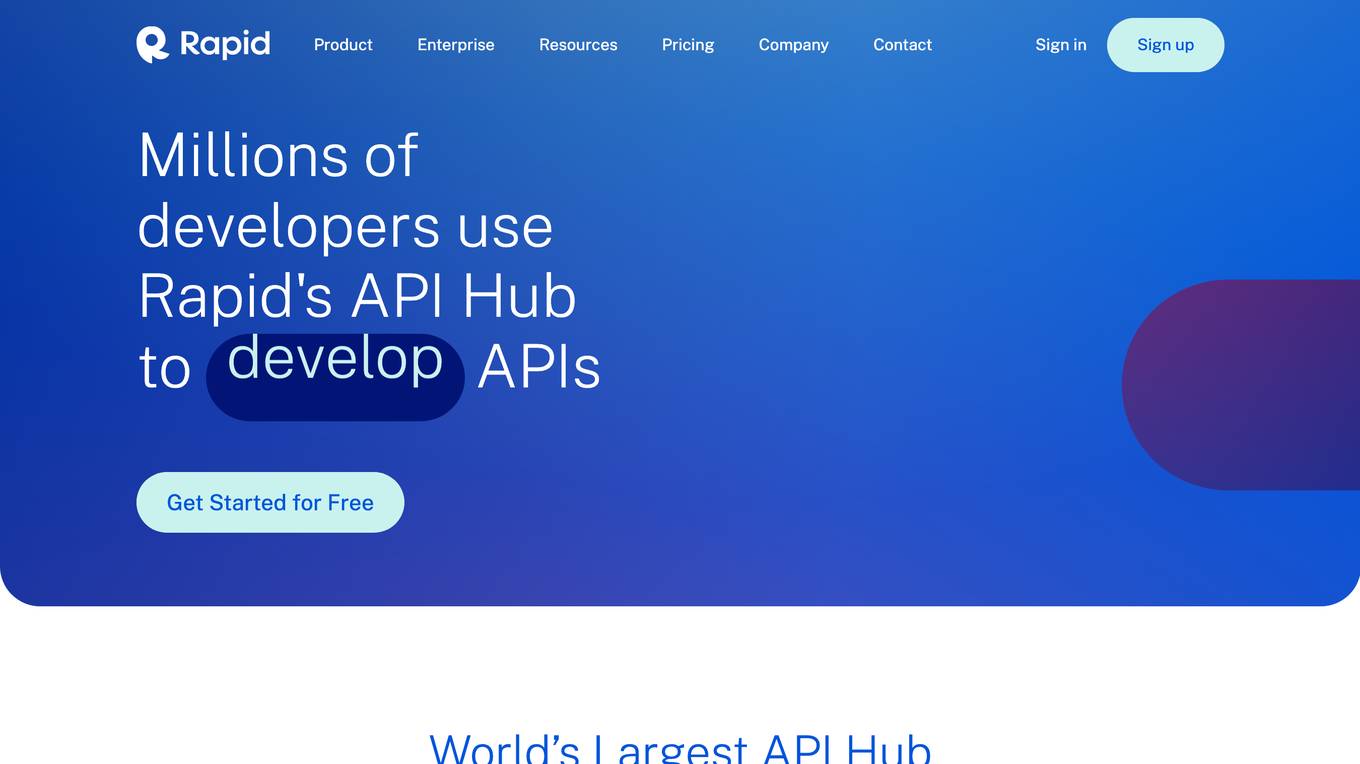
Nokia Rapid Technology Acquisition
Nokia, a global leader in the technologies that connect people and things, has acquired Rapid technology and its team. This acquisition is a strategic move to enhance Nokia's capabilities in the rapidly evolving technology landscape. Rapid technology is known for its innovative solutions in the field of [specific field]. With this acquisition, Nokia aims to strengthen its position in the market and drive innovation to better serve its customers worldwide.

Google Research
Google Research is a leading research organization focusing on advancing science and artificial intelligence. They conduct research in various domains such as AI/ML foundations, responsible human-centric technology, science & societal impact, computing paradigms, and algorithms & optimization. Google Research aims to create an environment for diverse research across different time scales and levels of risk, driving advancements in computer science through fundamental and applied research. They publish hundreds of research papers annually, collaborate with the academic community, and work on projects that impact technology used by billions of people worldwide.

Google Research
Google Research is a team of scientists and engineers working on a wide range of topics in computer science, including artificial intelligence, machine learning, and quantum computing. Our mission is to advance the state of the art in these fields and to develop new technologies that can benefit society. We publish hundreds of research papers each year and collaborate with researchers from around the world. Our work has led to the development of many new products and services, including Google Search, Google Translate, and Google Maps.
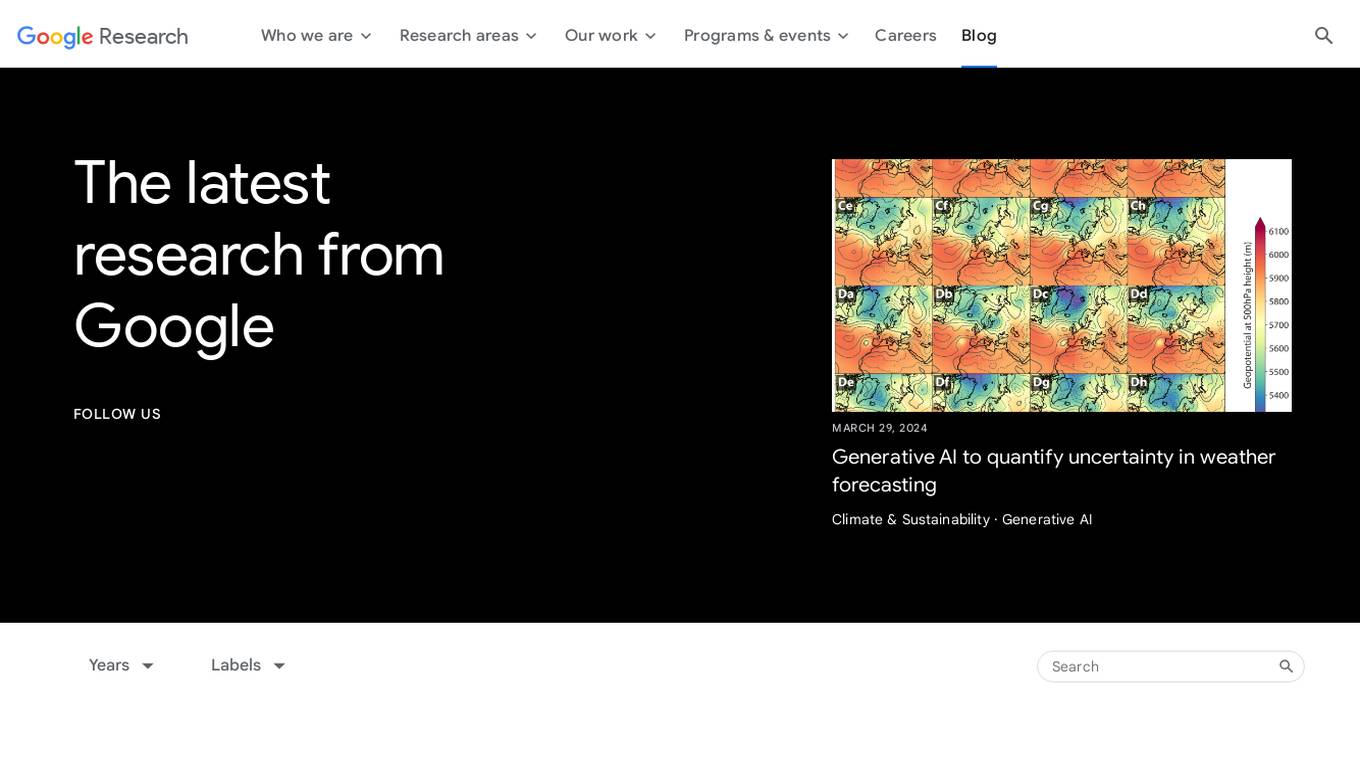
Google Research Blog
The Google Research Blog is a platform for researchers at Google to share their latest work in artificial intelligence, machine learning, and other related fields. The blog covers a wide range of topics, from theoretical research to practical applications. The goal of the blog is to provide a forum for researchers to share their ideas and findings, and to foster collaboration between researchers at Google and around the world.
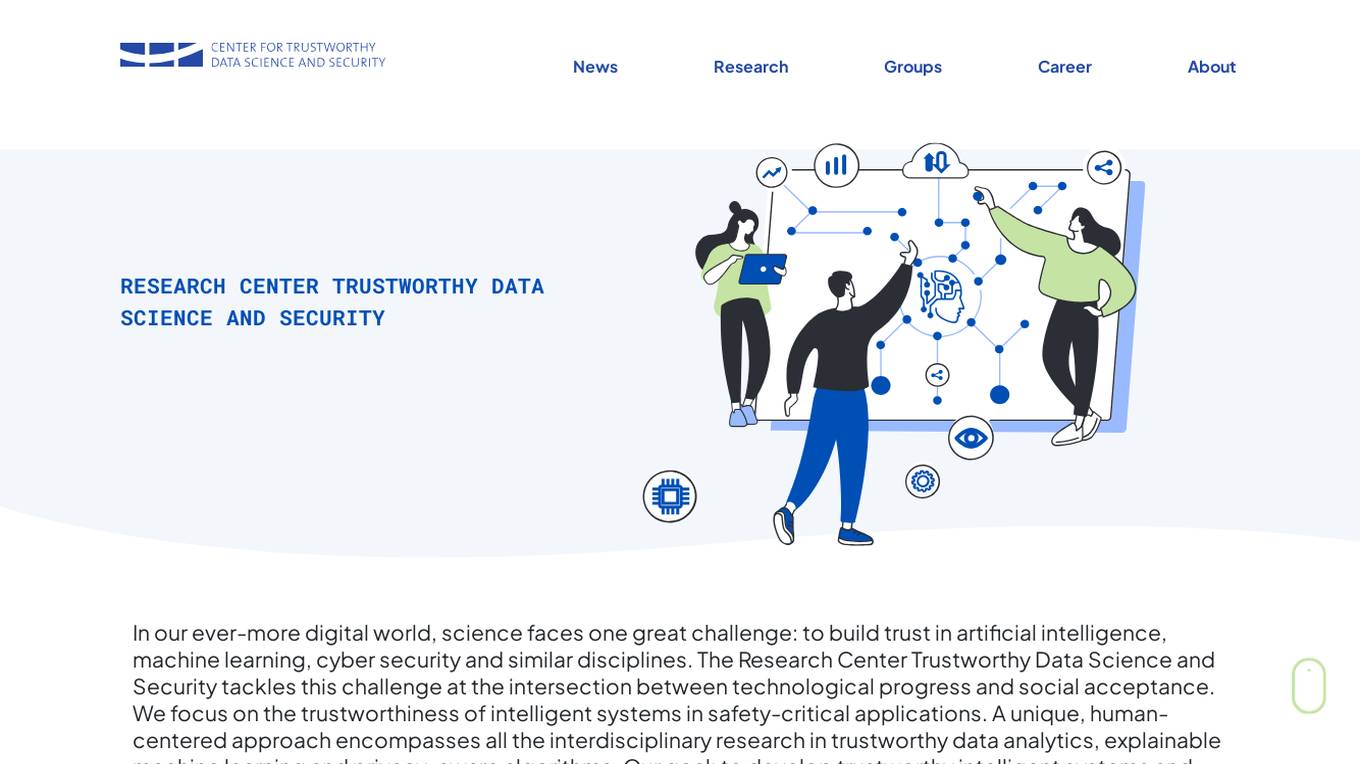
Research Center Trustworthy Data Science and Security
The Research Center Trustworthy Data Science and Security is a hub for interdisciplinary research focusing on building trust in artificial intelligence, machine learning, and cyber security. The center aims to develop trustworthy intelligent systems through research in trustworthy data analytics, explainable machine learning, and privacy-aware algorithms. By addressing the intersection of technological progress and social acceptance, the center seeks to enable private citizens to understand and trust technology in safety-critical applications.
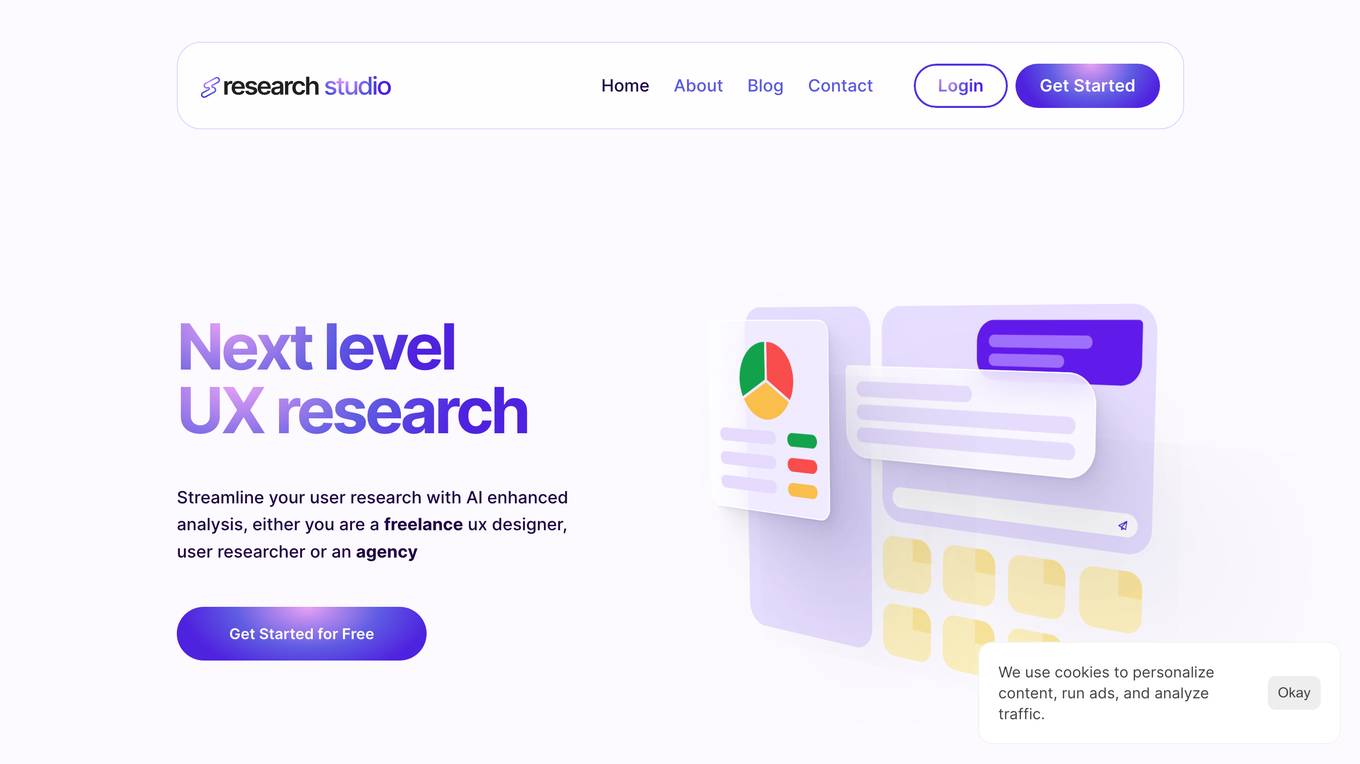
Research Studio
Research Studio is a next-level UX research tool that helps you streamline your user research with AI-enhanced analysis. Whether you're a freelance UX designer, user researcher, or agency, Research Studio can help you get the insights you need to make better decisions about your products and services.
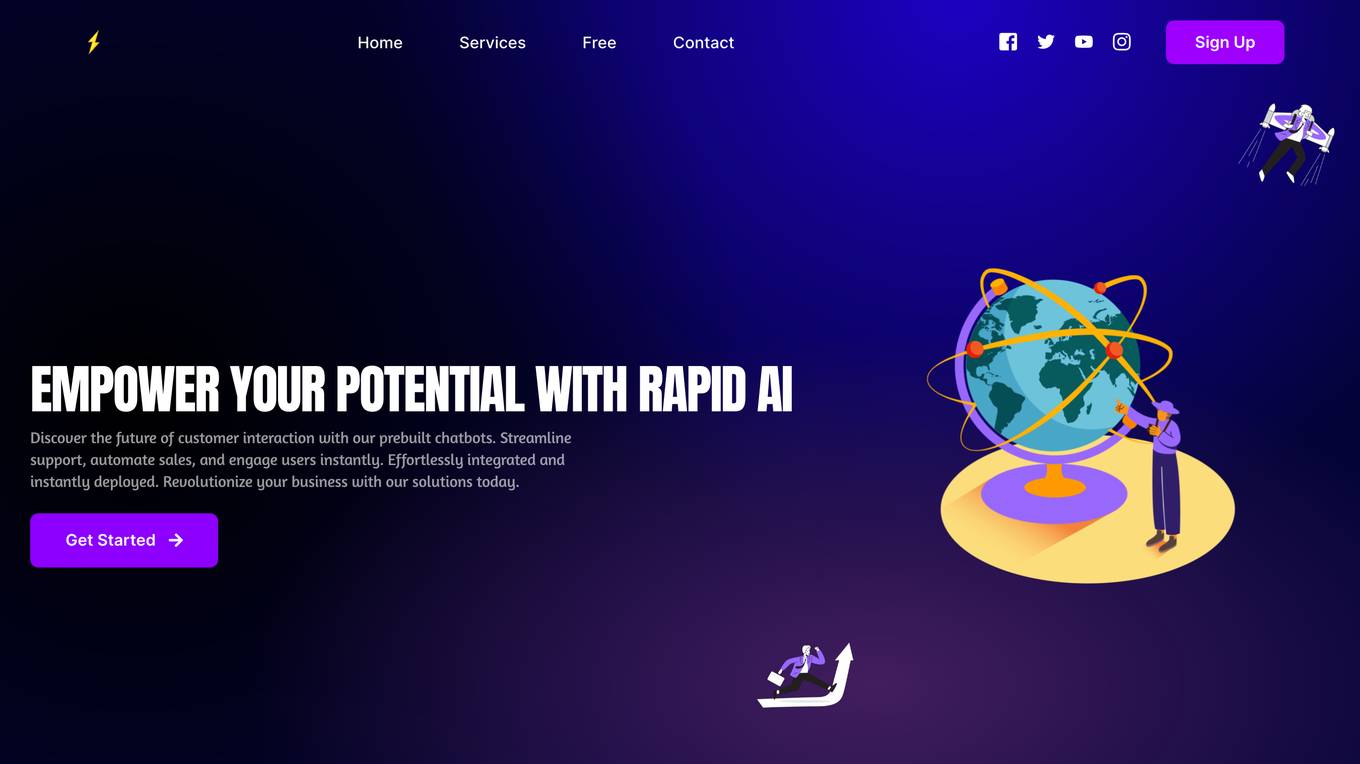
RapidAI Research Institute
RapidAI Research Institute is an academic institution under the RapidAI open-source organization, a non-enterprise academic institution. It serves as a platform for academic research and collaboration, providing opportunities for aspiring researchers to publish papers and engage in scholarly activities. The institute offers mentorship programs and benefits for members, including access to resources such as internet connectivity, GPU configurations, and storage space. The management team consists of esteemed professionals in the field, ensuring a conducive environment for academic growth and development.
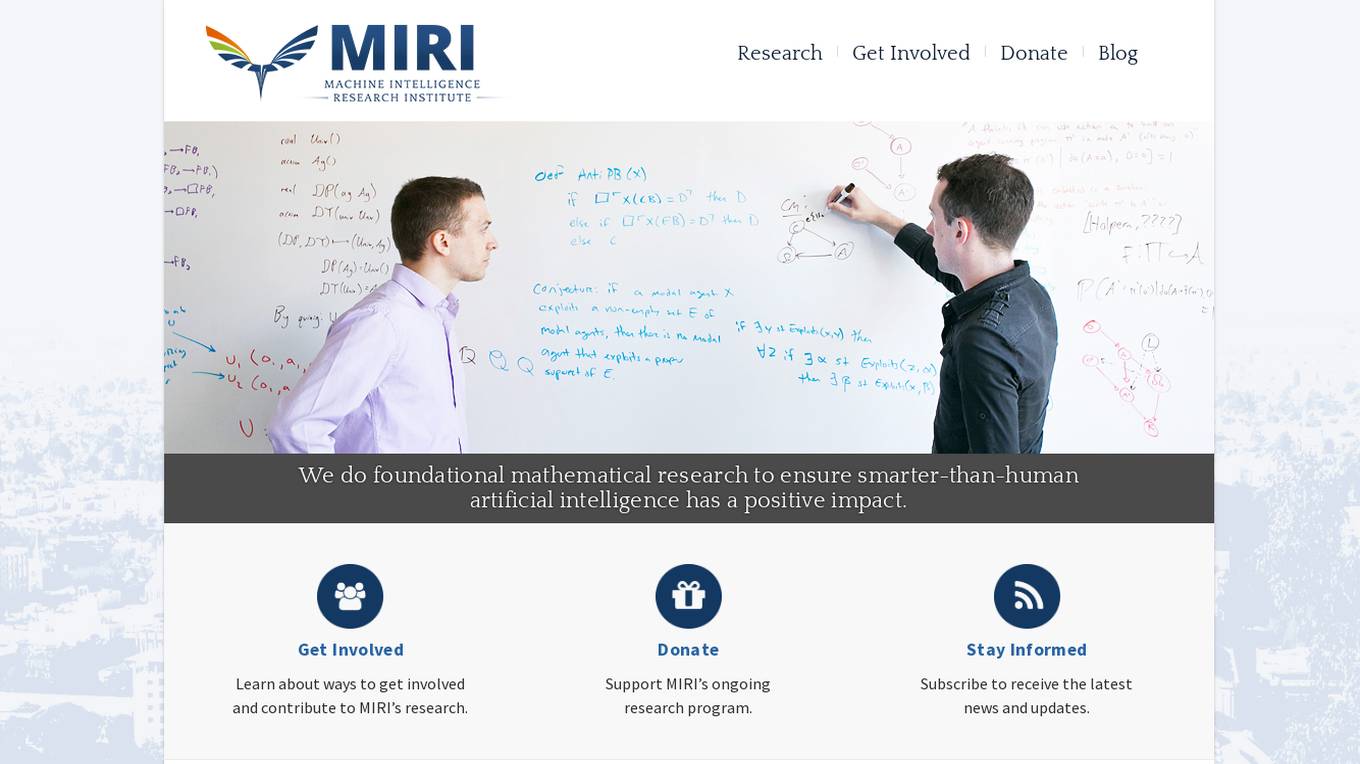
MIRI (Machine Intelligence Research Institute)
MIRI (Machine Intelligence Research Institute) is a non-profit research organization dedicated to ensuring that artificial intelligence has a positive impact on humanity. MIRI conducts foundational mathematical research on topics such as decision theory, game theory, and reinforcement learning, with the goal of developing new insights into how to build safe and beneficial AI systems.
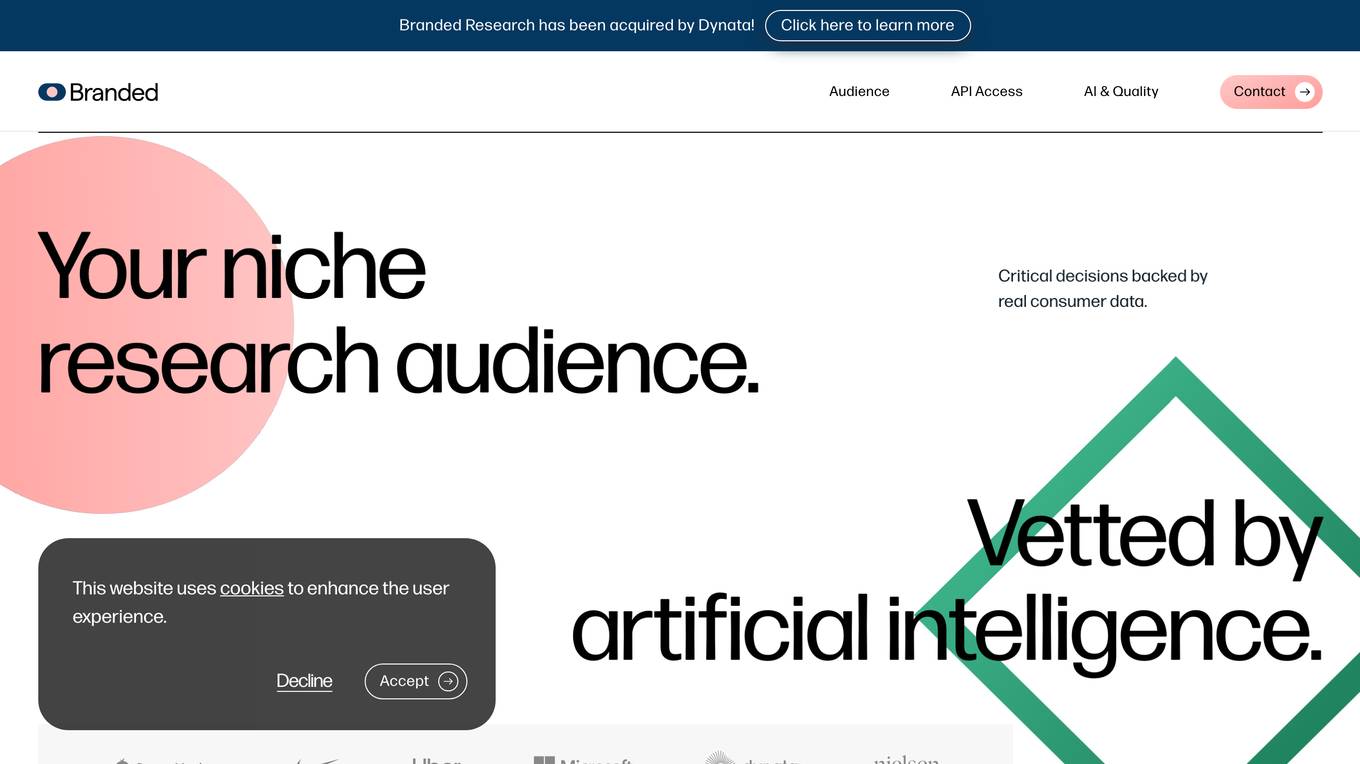
Branded Research
Branded Research, acquired by Dynata, provides access to AI-verified audience insights. It offers a range of research methods, including surveys, webcam studies, and emotional AI. With its advanced algorithms and extensive profiling, Branded helps businesses connect with their target audience and gain valuable insights to drive innovation. The company serves various industries, including tech, consumer goods, healthcare, and research agencies.
0 - Open Source AI Tools
20 - OpenAI Gpts
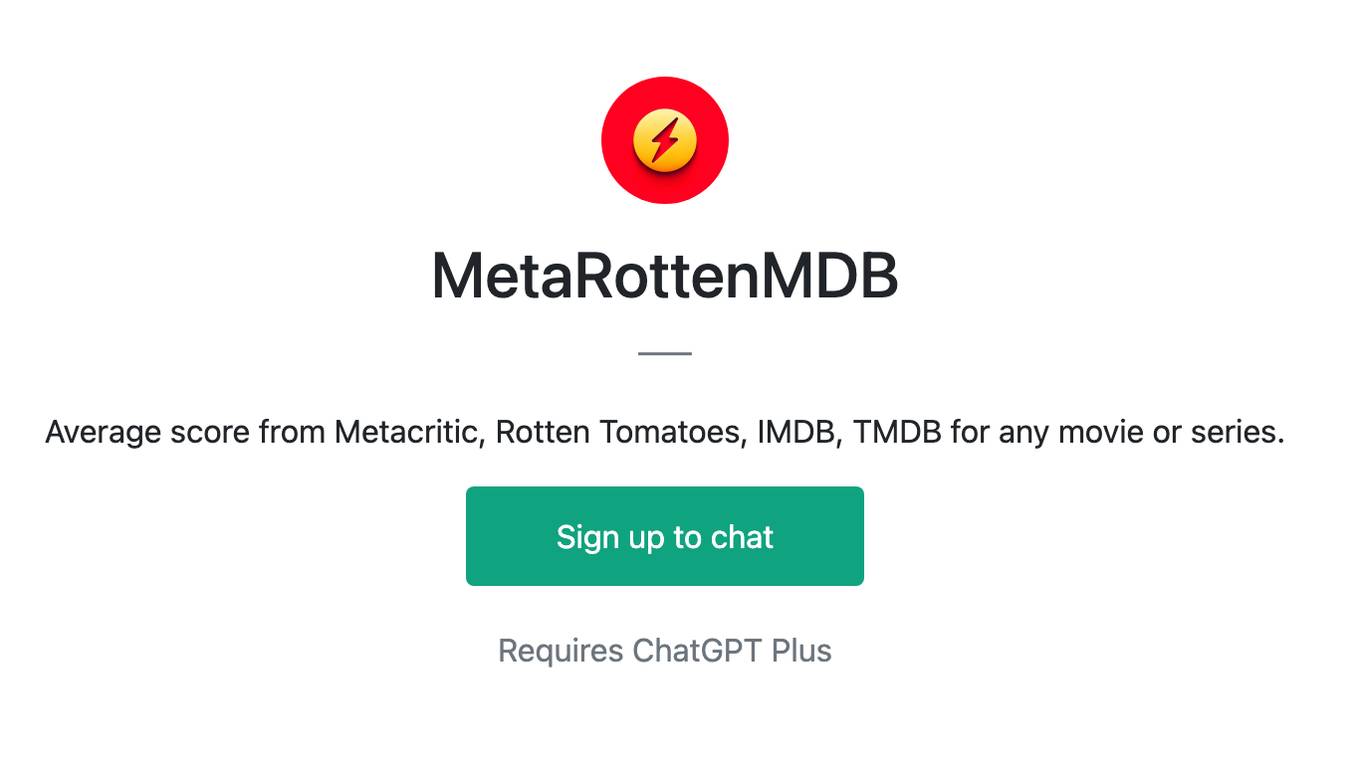
MetaRottenMDB
Average score from Metacritic, Rotten Tomatoes, IMDB, TMDB for any movie or series.

🎞️ FilmNerd
Your friendly movie buff for deep dives into cinema history, critiques, and all things film! 🎬✨

Now Playing... Where!?
Find out where you can watch movies and TV shows with ease. Ask me anything!
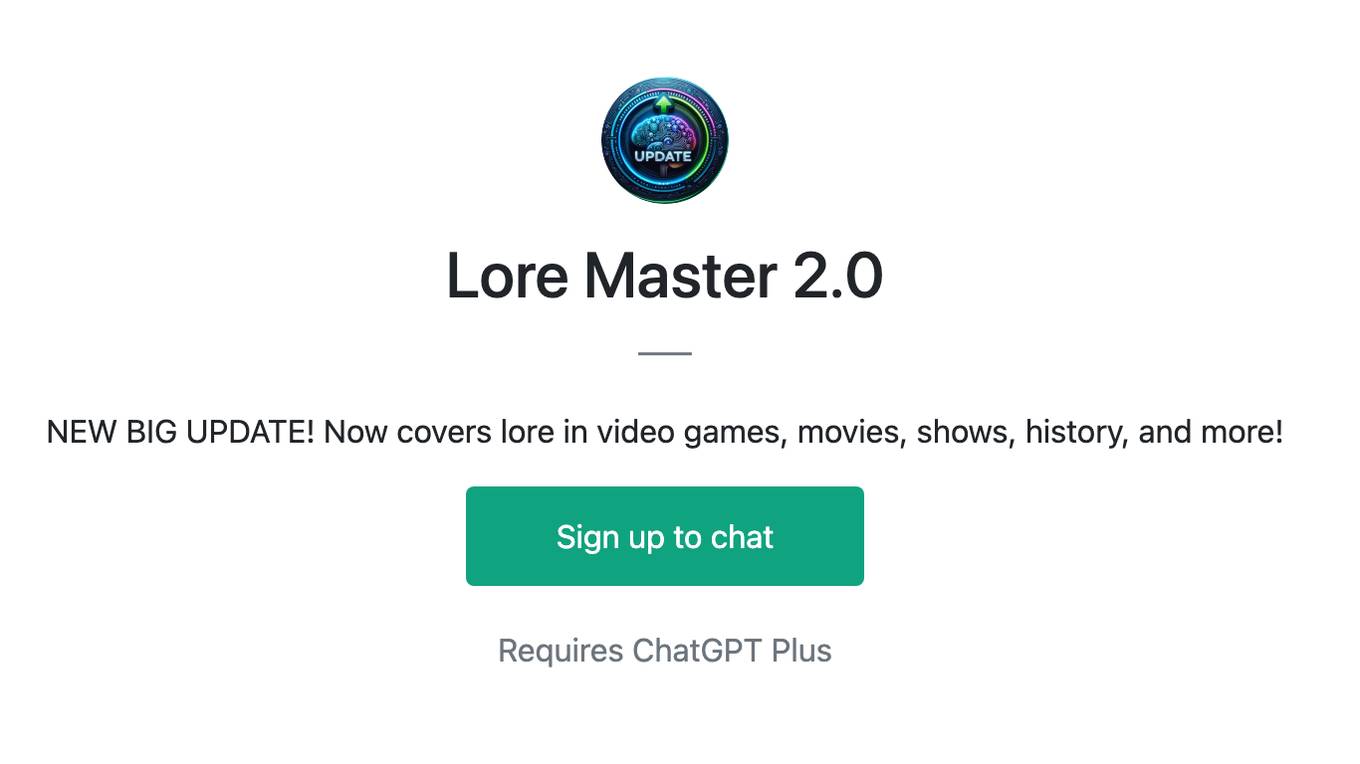
Lore Master 2.0
NEW BIG UPDATE! Now covers lore in video games, movies, shows, history, and more!
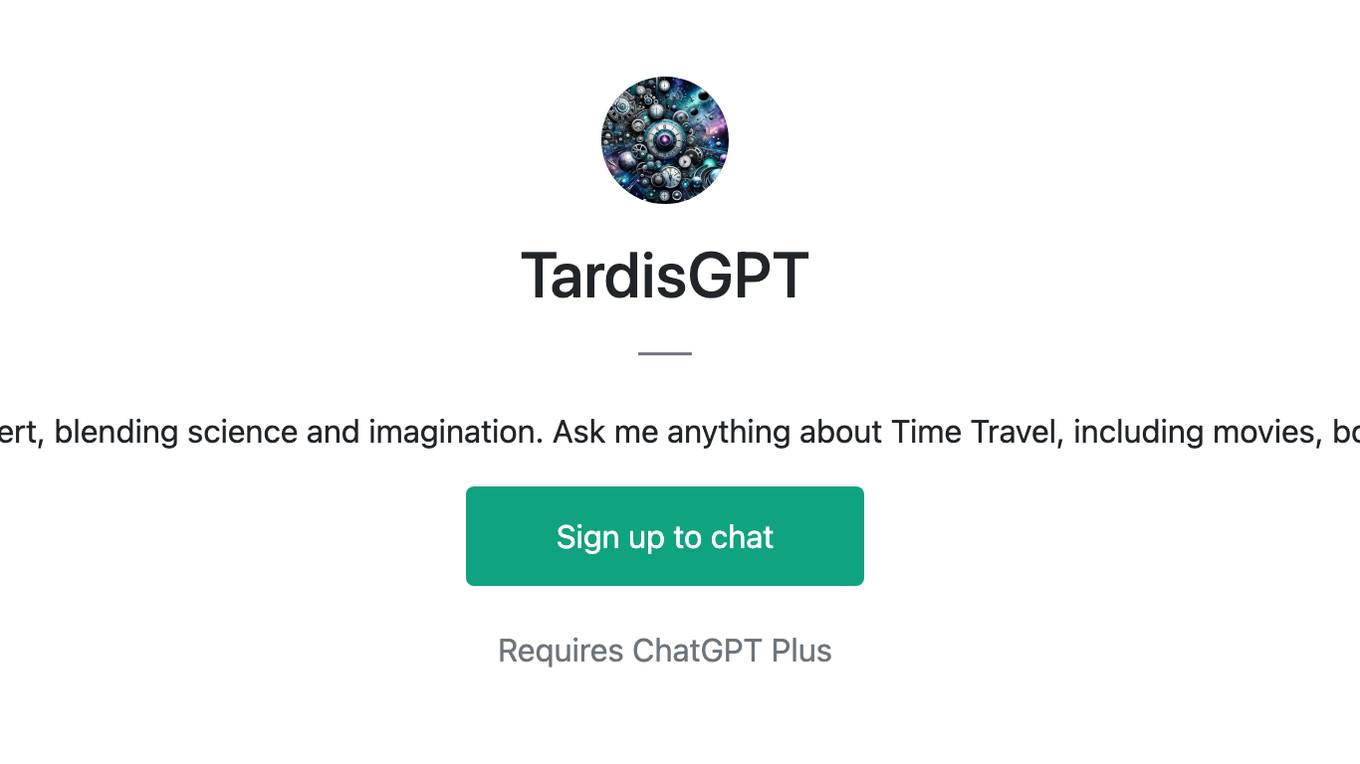
TardisGPT
Time Travel Expert, blending science and imagination. Ask me anything about Time Travel, including movies, books or series.
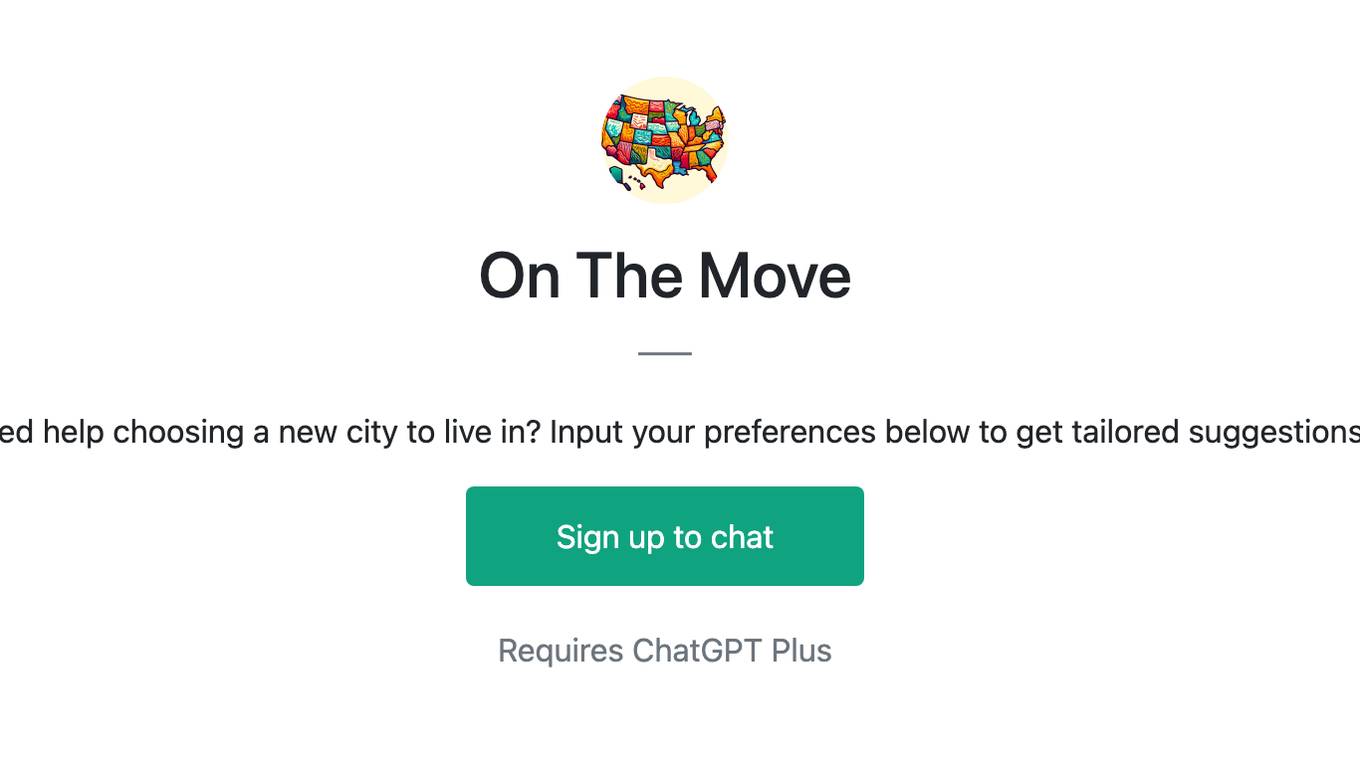
On The Move
Need help choosing a new city to live in? Input your preferences below to get tailored suggestions!
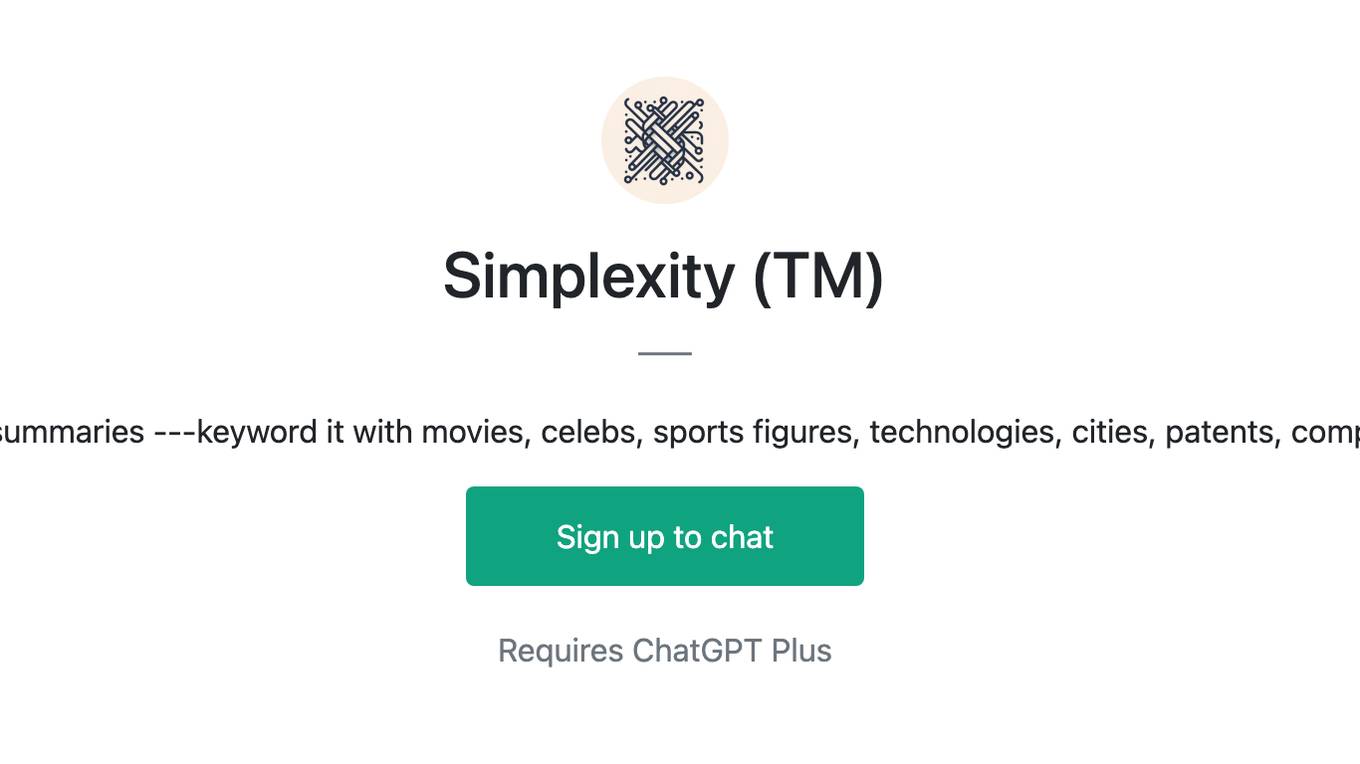
Simplexity (TM)
Simple rich summaries ---keyword it with movies, celebs, sports figures, technologies, cities, patents, company name
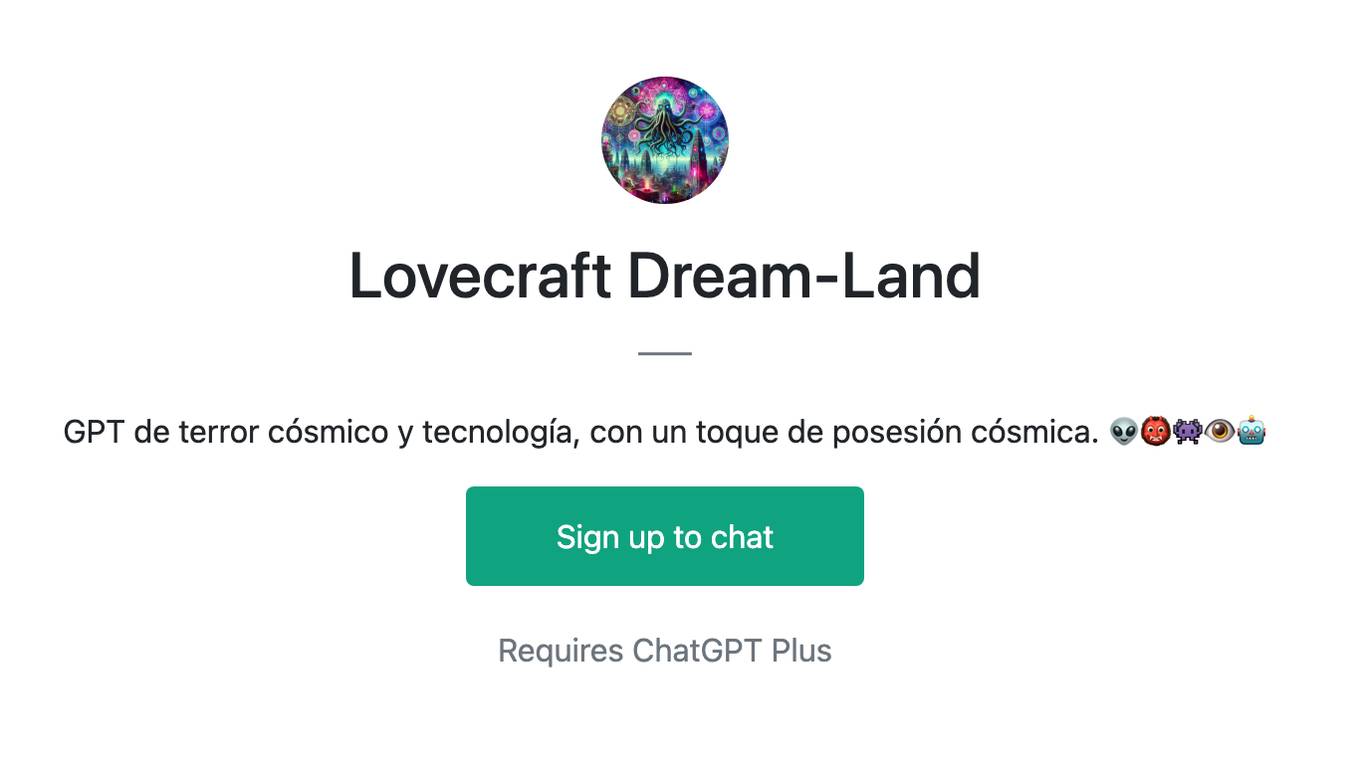
Lovecraft Dream-Land
GPT de terror cósmico y tecnología, con un toque de posesión cósmica. 👽👹👾👁🤖
